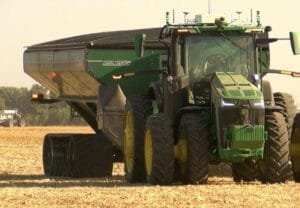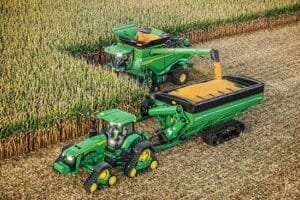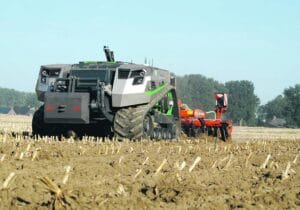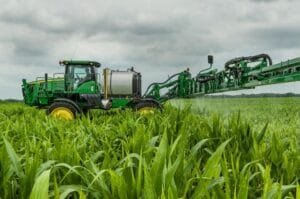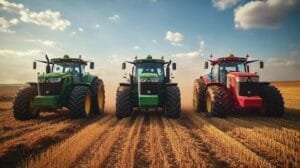Agricultural machinery giant John Deere has announced its latest breakthrough in farming automation with the release of new self-driving tractors, marking a significant advancement in precision agriculture. The autonomous vehicles,equipped with advanced sensors and GPS technology,allow farmers to operate their equipment remotely while artificial intelligence systems handle the actual field operations. This advancement represents another step in the ongoing change of conventional farming practices into digital agriculture,as manufacturers continue to integrate smart technology into farm equipment. In a groundbreaking development for agricultural technology, the latest autonomous tractors from the industry leader combine artificial intelligence with time-tested farming expertise. These innovative machines operate independently through fields, performing essential tasks while farmers monitor progress remotely through mobile devices.
The cutting-edge vehicles feature advanced GPS guidance systems accurate to within one inch, enabling precise navigation across varying terrain. Multiple sensors and cameras provide 360-degree awareness, allowing the tractors to detect and avoid obstacles while maintaining optimal working patterns. This technology ensures efficient operation during crucial planting and harvesting seasons, even in low-visibility conditions.
Farmers can program these autonomous vehicles through a user-friendly interface, setting parameters for field boundaries, working depth, and speed. The system’s machine learning capabilities enable it to adapt to different soil conditions and crop types, adjusting operations accordingly. Real-time data collection provides valuable insights into soil health, crop status, and equipment performance.
These self-driving tractors can operate continuously for up to 24 hours, requiring only brief stops for refueling. This extended operational capability significantly increases productivity during critical farming windows. The vehicles also integrate seamlessly with existing agricultural equipment and implements, maintaining compatibility with current farming operations.
Safety features include emergency stop mechanisms, geofencing capabilities, and redundant control systems. The tractors automatically halt operations when detecting unauthorized personnel or animals in their vicinity. Additionally, encrypted communications protect against potential cyber threats, ensuring secure remote operation.
Weather-resistant construction and reinforced components ensure reliability in harsh agricultural environments. The machines undergo rigorous testing in various climate conditions,from extreme heat to subfreezing temperatures. Maintenance requirements are streamlined through predictive diagnostics, alerting operators to potential issues before they cause downtime.The economic impact of these autonomous tractors extends beyond operational efficiency. Labor costs decrease significantly, while precision farming capabilities reduce waste in fuel, seeds, and fertilizers. The technology also addresses the growing challenge of agricultural labor shortages in many regions.
Environmental benefits include reduced soil compaction through optimized path planning and precise application of agricultural inputs. The systems can operate with electric power options, contributing to lower emissions in farming operations. Smart spraying technology reduces chemical usage by targeting specific areas requiring treatment.
Data collected during operation integrates with farm management software, enabling better decision-making for future growing seasons. This facts helps optimize crop rotation, resource allocation, and timing of agricultural activities. The autonomous system also provides detailed documentation for regulatory compliance and sustainability certification.
These technological advancements represent a significant step toward fully automated farming operations, promising to revolutionize agricultural productivity while addressing environmental and economic challenges facing modern agriculture.

